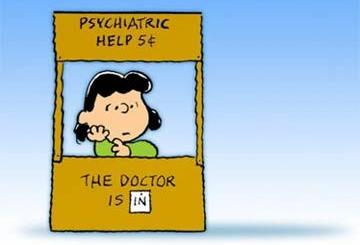A minor cultural kerfuffle flared up recently about airline seats and the question of whether to recline or not.
On a United Airlines flight last month between Newark and Denver, a passenger installed a device called a “Knee Defender” which prevented the woman in front of him from reclining her seat. He was asked to remove it, he refused, flight attendants got involved, tensions escalated, the woman threw water in the man’s face and the flight was diverted to Chicago and passengers removed.
Now, I think we can all agree that the water throwing and the fighting is unacceptable behavior. The more subtle question that this episode raised is whether reclining one’s seat is acceptable behavior.
The simple answer is, yes. Sure, it cuts down on the legroom of the person behind you, and makes it more difficult for that person to use the tray table and especially a laptop (the complaint of the man on the Denver flight). But reclining is permissible, it is legal. After all, the seats are designed to recline. One can say that if the airlines did not want you to recline, they would not have designed the seats like that in the first place.
But that still leaves the question: even if it is our right to recline, should we?
Me, I’m a non-recliner. I will only recline my seat if the seat behind me is empty. And I don’t recline for the simple fact that that I don’t like it if the person in front of me reclines. The reclining-seat issue is for me one that is an illustration of Rabbi Hillel’s maxim from the Talmud when he summed up the entire Torah while his student was standing on one foot: “That which is hurtful to you, do not do to your neighbor.”
There is a larger value at work here in the reclining-seat debate. There are a great many things in life that are within the realm of acceptable behavior, things that are legal, things that are by right ours to do. But just because we can do something, does not mean we should do it. Yes, I can recline my seat on an airplane. It is my right. But it does not mean I need to exercise it.
There is even a Jewish legal (halachic) principle that our tradition identifies known as
lifnim meshurat hadin
. Literally meaning “within the line of the law,” it defines extralegal behavior one demonstrates by acting in accordance with the spirit of a law and not just the letter, or by forgoing a privilege one is due for the sake of the benefit of another. When one acts lifnim meshurat hadin, one acts with compassion and kindness towards another, taking into concern the needs and desires of the other and not just of oneself.
Reclining your seat on an airplane is an example of this. Maybe it’s a minor example, but an example nonetheless. And shouldn’t we be just as attentive to a minor case as a major one? Minor acts can beget major acts. If we are not mindful of the impact of the small things, we are sure to grow in our callousness and insensitivity. And truly it is not a small matter when we forgo what we are due for the sake of another.
Tonight begins Rosh Hashanah and the New Year. And as we mark Rosh Hashanah we also begin the period known as the “10 Days of Teshuvah” which bring us through Yom Kippur, the Day of Atonement. We examine the ways we personally have erred over the past year, and it is also a time to examine our interpersonal relationships and how we wish to be with one another.
So I offer this as a kavannah (intention) for this year. If your actions, even though socially acceptable and permissible, infringe on another even slightly, maybe make a different choice. Think through all the consequences of your actions, no matter how minor. Try to maximize the benefit of all those involved, and not just your own. Ask yourself, even though I could do this, should I?
And this year, leave your seatbacks in their full, upright position.
Rosh Hashanah
Pronounced: roshe hah-SHAH-nah, also roshe ha-shah-NAH, Origin: Hebrew, the Jewish new year.
Talmud
Pronounced: TALL-mud, Origin: Hebrew, the set of teachings and commentaries on the Torah that form the basis for Jewish law. Comprised of the Mishnah and the Gemara, it contains the opinions of thousands of rabbis from different periods in Jewish history.
Torah
Pronunced: TORE-uh, Origin: Hebrew, the Five Books of Moses.


